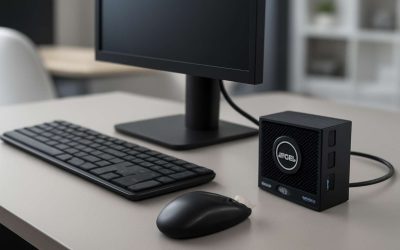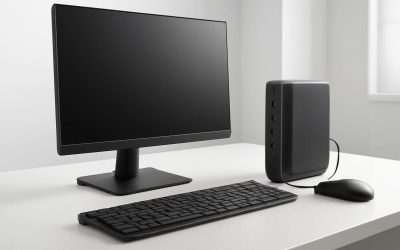
Thin client computing is a technology that allows users to access the computer resources they need to complete their jobs from any device, whether it’s a laptop or tablet. The system eliminates most IT management tasks, including installing software, securing hardware, and updating or patching software. In addition, thin client systems are more environmentally friendly than traditional computers, which often contain multiple components that require power and cooling to function properly.
Benefits of Thin Client Computing
Many business owners and IT professionals are interested in deploying thin client systems to help save money on the expense of supplying employees with desktop PCs. These devices can cost millions of dollars per year to supply, and they can be expensive to replace if they break down.
Those costs are even higher for companies that have to deal with employee turnover. Thin clients are less expensive to purchase and replace than PCs, so the savings can quickly add up.
A thin client connects to a server via a wireless network, which removes the need for a physical hard drive that can become corrupt or become damaged by constant use. Instead, the data is stored and managed on a central server that can be accessed from any device within the network.
It also eliminates the need to install, update or patch the operating system on every individual workstation that the end user has access to, which can save the organization time and effort in securing and repairing devices. When a device breaks down, administrators can quickly re-create the environment on the server.
Reduced Costs
In large enterprise organizations, supplying workers with desktop PCs can cost millions of dollars per year. The cost of a new PC isn’t just the initial purchase price, but it also includes costs for IT support, software licensing and replacement parts.
Another disadvantage of thin clients is that they have to connect to the company’s network and are dependent on it to run, which can slow down or lead to latency issues if the network is weak or unreliable. The latency and lag can be especially troublesome for remote users who aren’t connected to the corporate network.
These disadvantages can be addressed by implementing technologies such as desktop virtualization or shared terminal services that allow each user to access a virtualized operating system and applications on a single server. These technologies can be adapted to suit a variety of use cases, from allowing employees to work in different locations to providing more security.
Some organizations choose to deploy thicker clients, which are designed to perform more processing-intensive functions such as running CAD or graphics-heavy applications. These devices are typically more expensive to purchase and deploy, but they can last longer and provide a better overall experience for users than thin clients.
In the future, thin clients will likely be more secure and easier to manage than they are today. This will happen because workers are more likely to utilize microapps that deliver a small piece of the functionality of full-blown apps on their devices. They may also begin to use web-based apps to perform common functions, which can help to improve boot times and accessibility outside of app stores.



0 Comments